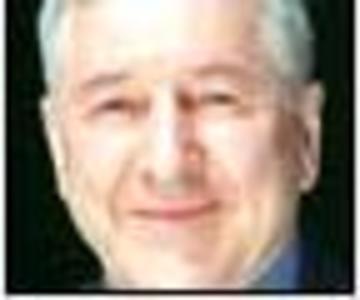The Quebec election campaign has so far unfolded as a dramatic personal tragedy for the tall, handsome, usually broadly smiling André Boisclair. The 40-year-old leader of the Parti Québécois carries in his person not just the darkening fortunes of his party, but also the dream of Quebec's independence.
And so the PQ members have been extraordinarily demanding of their leaders since the party was founded by René Lévesque in 1968. The one chosen to lead Quebec into the promised land must be personally exemplary, but also successful. As Bernard Landry said in happier times, "the sovereignty movement always moves forward, it never falls back."
Under Mr. Boisclair, the PQ has been falling back. It's too early to predict the vote's denouement on March 26. The leaders' debate on Tuesday could still turn things around. But recent polls have shown the PQ trailing Jean Charest's Liberals in almost every region. Even in its heartland of the Saguenay-Lac St-Jean region, the PQ is threatened by the Liberals and the suddenly competitive Action Démocratique du Québec.
Especially damning was a poll of 3,101 respondents by Léger Marketing for The Gazette and the Journal de Montréal. Published last Friday, it showed the Liberals at 36 per cent, the PQ at 29 per cent and the ADQ at 25 per cent. Worse still, when asked which of the leaders would make the best premier, Mr. Boisclair came third, chosen by only 19 per cent, bested by Mr. Charest at 30 per cent and the ADQ's Mr. Dumont at 26 per cent.
Other issues in the campaign have come and gone. This week, the newsworthy item was Mr. Charest's suggestion that Quebec could be partitioned if the province tried to secede. The Supreme Court of Canada had said as much in 1998 in the secession reference. Stéphane Dion had raised the same likelihood when he was appointed to the federal cabinet in 1996. But for a Quebec Premier to state the obvious during an election campaign is considered a "gaffe," even a scandal, by opposition politicians and journalists alike.
This is mostly theatre. The real campaign issue is Mr. Boisclair.
It wasn't supposed to be this way. Mr. Boisclair, elected leader in November of 2005, was the Teflon man. He had made no secret of his homosexuality, and had admitted to snorting cocaine while a minister in the Quebec government. But now these lifestyle realities have returned to haunt him.
He was the golden boy, elected to the National Assembly at 23, a cabinet minister at 29. When the party lost the 2003 election, he quit to pursue a master's degree in business administration at Harvard. He was about to move to Toronto for a position with a financial firm when Bernard Landry resigned. Mr. Boisclair made his move and won.
An opinion poll showed him leading the Liberals by 19 points. Mr. Charest was setting unpopularity records. The Martin Liberals were scorched by the sponsorship scandal, and federalism in Quebec was in disgrace. The Bloc Québécois was set for a sweep. Stephen Harper's Conservatives were unlikely to win one Quebec seat.
But the Conservatives took office and 10 Quebec seats on an offer of "open federalism." Federalism became respectable again after Mr. Harper gave Quebec a forum at UNESCO, recognized the Québécois as a nation and promised to solve the "fiscal imbalance" in a budget that will come down, conveniently, a week before the Quebec election.
The Bloc, stunned, ordered an internal investigation. The "mystery of Quebec," the report said, was really a revolt against Montreal, its dominance, its priorities, its style. (The Montreal-bred Mr. Boisclair epitomized its very values.)
Then came Hérouxville's revolt against "reasonable accommodations." Mr. Boisclair, who had appeared in a televised parody of Brokeback Mountain and who had proposed removing the crucifix from the National Assembly, became the very personification of Hérouxville's disquiets.
He shocked conservative Quebeckers and, by criticizing his own party for having been "buddy-buddy" with union leaders, also angered the left. As his support dropped in the polls, prominent Péquistes, including Mr. Landry, seemed intent on replacing him.
Mr. Charest had said he would not call an election until after the federal budget. Instead, he pounced last month to catch the PQ in disarray. "The choice is between unity and separation," he proclaimed. Indeed, the PQ platform, adopted at its 2005 convention, calls for a rapid referendum on independence, with a clear question and no association.
Mr. Boisclair is hampered by the hard-line program on secession. But the more important question has been over his maturity and reliable judgment. And so, much of the PQ support has shifted to Mr. Dumont, who just a few months ago seemed headed to oblivion.
Many are predicting a minority government. Quebec has had only one, in 1878. More likely, Quebeckers will float until the last stretch, then move to one of the parties. They love dramatic politics.
William Johnson, a former president of Alliance Quebec, is the author of Stephen Harper and the Future of Canada.
It's Boisclair. No, it's Dumont. No, it's Charest. No, it's ...
Québec 2007 - Après un OUI - Charest et la partition

William Johnson53 articles
William Johnson, a Quebec journalist, is a former president of Alliance Quebec





















Laissez un commentaire Votre adresse courriel ne sera pas publiée.
Veuillez vous connecter afin de laisser un commentaire.
Aucun commentaire trouvé